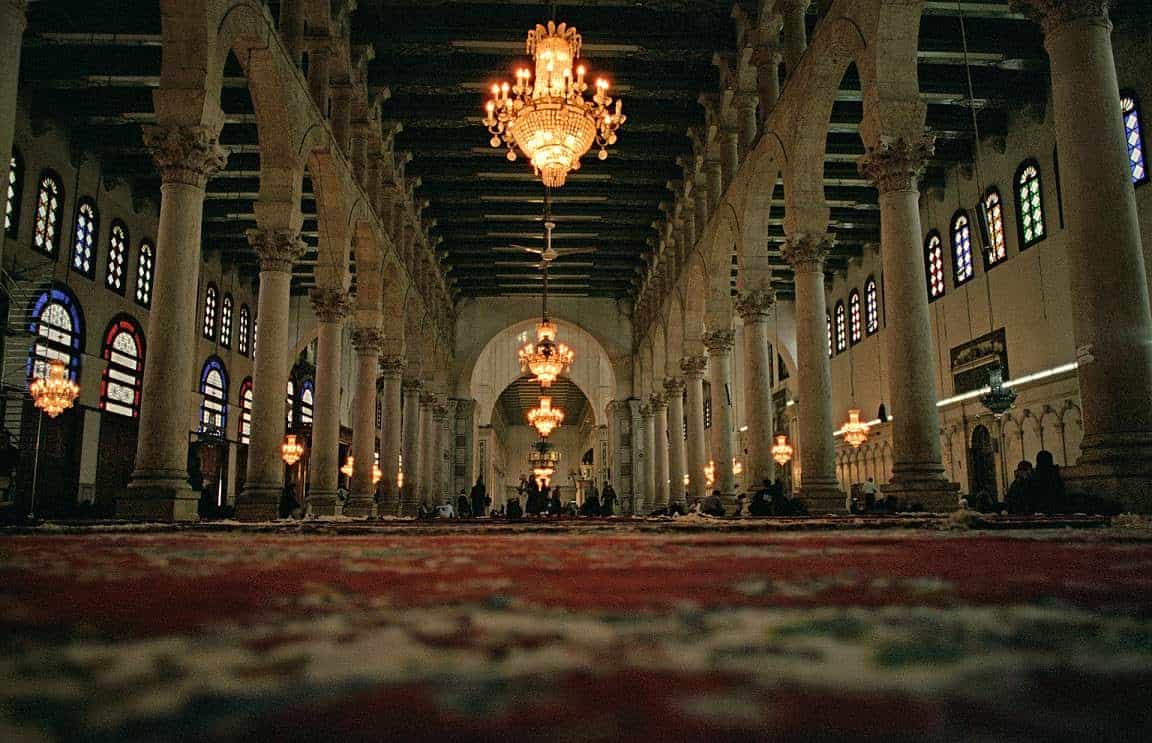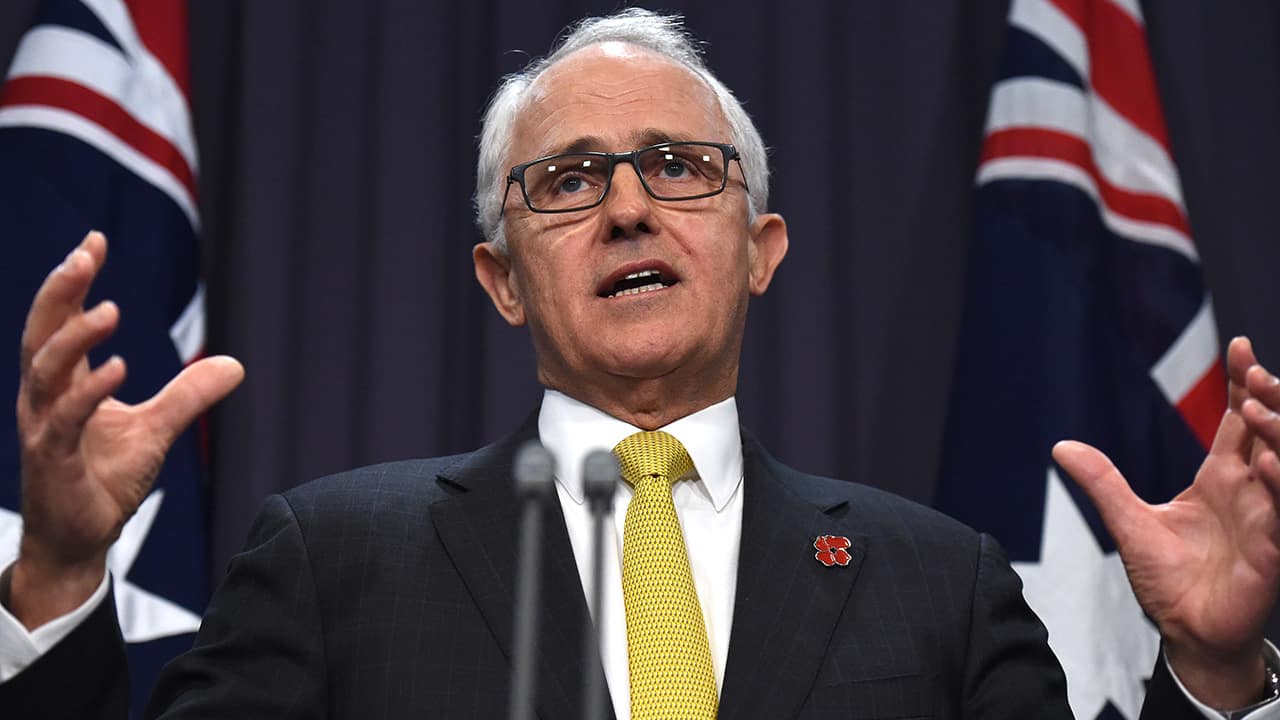Click on the drop down arrow to the right of questions to read answers.
What is the Khilafah?
The Khilafah (Caliphate) is the political leadership of the Muslim Ummah, led by a Khalifah (Caliph) whose role it is to succeed the Prophet (saw) in his role of implementing the Deen of Allah and carrying it to the world. The word ‘khilafah’ literally means ‘succession’ and it was the Prophet (saw) himself who used it to refer to the leadership of the Ummah that was to come after him in multiple ahadith.
In modern parlance, the Khilafah can be thought of as a state based on Islam (hence ‘Islamic State’), though there are fundamental differences between it and the modern western nation state. The ruling system of the Khilafah bears no resemblance to any of the governments in the Muslim world today, all of which – whether monarchies, dictatorships or democracies – are the rotten fruits of a colonial legacy.
Its responsibility is to equitably manage the affairs of all citizens, Muslim and non-Muslim alike, through the implementation of the laws of Islam (Shari’ah) in their capacity as divine laws which, given their divine origin, are the most suitable laws for humanity. The Khilafah implements the Shari’ah, which is a comprehensive system that legislates on political, social, economic, foreign policy and judicial matters.
Economic progress, elimination of poverty and enhancing people’s standard of living are all goals the Khilafah aims to achieve. Historically the Khilafah was an immensely wealthy state with a flourishing economy, high standard of living and a world leader in industry and scientific research. Unlike like other states, however, its objectives are not purely material. Rather, spiritual objectives are foremost and life in the Khilafah is a life centred around Allah (swt), not man.
What is the Khalifah?
The Khalifah is the head of the Khilafah. In fact, he is the Khilafah since the role of succeeding the noble Prophet (saw) in implementing the Deen is vested in his person. However, there exist in the Khilafah other institutions (consultative bodies, governors, judiciary, army, etc.) formed through delegation of his authority and hence the distinction between the two is relevant.
The Khalifah is not a king with divine right or a dictator. He is an elected leader whose authority to rule must be given willingly through a particular voluntary contract of ruling [bay’ah]. He is not like the Pope; he is not a spiritual head, nor is he infallible. It is the Ummah that appoints him and she has the right, nay the obligation, to account him.
How Khilafah is different from the prevalent ‘nation state’ concept?
There are multiple fundamental distinctions between the Khilafah and the Westphalian nation state, which is the modern form of political organisation globally. One, the former is not sovereign like the latter; absolute sovereignty is for Allah. Two, it is not secular; there is no arbitrary distinction between religion and politics and no separation of religion from public life. Three, it does not have permanently fixed borders; it is an expansive state with temporary borders at any given point in time. Four, these borders are not based on ethnic or racial lines, but serve only the role of distinguishing the lands which falls under the authority of the Khilafah from those that do not. These are but some of the fundamental distinctions.
How is a Khilafah even possible given the numerous different sects in Islam such as Salafis and Sufis, Deobandis and Beralwis, Ash’ari and Atharis, and Hanafis and Shafi’is?
The differences among the Muslims on these grounds are in details of fiqh or the details of aqidah. They are not differences in the fundamentals of Islam or on the understanding of the Khilafah, its role, its primacy, etc. Muslims, whether those named in this question or various other elements with the Ummah, agree on the basic obligations, the foundational creedal [aqidah] matters and agree on the primacy of the Khilafah and its importance.
As to how Muslims from such viewpoints will co-operate, then Islamic history is an evidence that when it comes to the implementation of Islam, the propagation of it under the Khilafah and other such priorities, Muslims have been able to unite, and not just unite, but also flourish. It should be borne in mind that such different madhabs and sects are not a new phenomenon. They have existed in various forms from the very beginning.
Further, the Khalifah is not to adopt and enforce an opinion in the details of creed or personal fiqh. The Muslims are left to adopt and practice whatever valid positions they choose.
What must Muslims living in the west do to support the re-establishment of the Khilafah in the Muslim World?
Muslims in the west can do many things. They can raise the awareness and the general call for the Khilafah. They can join the organised work with groups like Hizb ut-Tahrir. They can contact their families and friends living in the Muslim world and encourage them to join the work for the Khilafah in their countries or to, at the least, adopt the call for Khilafah. They can speak the truth in regards to matters affecting the Muslim Ummah, speaking out against the oppressive foreign policies of western governments. They can resist the local plans on the part of western governments to create a diluted, secular Islam which seeks, in part, to disconnect Muslims living in the West from their global Ummah by impressing on them localised nationalist identities (‘Australian Muslim’, ‘American Muslim’).
Won’t Imam Mahdi be the one to re-establish the Khilafah? Can it be established without him?
No! There is no definitive evidence in the Qur’an or the Sunnah for such an understanding. In fact there are authentic ahadith which indicate that Imam Mahdi will descend at a time when people are arguing about the succession of a Khalifah, which implies that there already exists a Khilafah.
All of this aside, the commands by Allah (swt) to rule by Islam are decisive and the obligation of the Khilafah is established upon the Ummah by consensus of the Ulama. Thus this work to re-establish Islam cannot be left to be done by someone else.
How will the Khilafah solve the major problems facing the world under Liberal Capitalism?
Fundamentally, the Khilafah is the best system for humanity because it is the system revealed by the Creator of humanity and the world, Allah (swt). The rules and systems of Islam are best suited to the reality and natural disposition [fitra] of human beings because they are based on perfect divine knowledge and wisdom. In contrast, all man-made ideologies and systems are based on the human intellect which is extremely limited and subject to contradictions, disparity and influence by environment.
We can appreciate the superiority of the Islamic position in comparison to the prevailing Liberal Capitalist system in some areas, for instance:
1. The Liberal Humanist worldview elevates the individual as the most important unit of society, while affirming that one’s purpose of life is maximise pleasure and privileging the material over the spiritual. This naturally leads to the fragmented, individualistic, dog-race world we see around us where everyone runs after ‘happiness’ through material acquisition, only to find stress, anxiety and depression instead. In contrast, Islam affirms the critical importance of family and community while not negating the individual. It takes the material with the spiritual and directs one’s purpose in life toward the Creator and the service of humanity.
2. Secular liberal premises effectively render morality and indeed all meaning subjective. Nothing remains objective or grounded in any objective reality. No moral limits are ever fixed. Something immoral today could be celebrated tomorrow. Everything is relative and subjective. In contrast, Islam grounds morality and meaning in the objective reality of the Creator, with fixed moral principles and limits.
3. Under Capitalism, capital is the source of wealth and influence. The economic elite are the most influential people, influencing and corrupting politics, governance, media, institutions, etc. Everything is commercialised and becomes an economic equation, including education. Research and development too becomes subject to commercial considerations. In Islam, the divine rules are sacrosanct and are the criteria of action, judgement and measure. They place everything in its proper place preventing human greed from corrupting society.
4. Some more specific examples:
– Clearly harmful substances like alcohol – 5000 people die annually due to alcohol-related illness in Australia! – are permitted only to fulfil the vain desires of some and the fill to pockets of others. Islam prohibits such harmful substances.
– The Islamic economic system focuses of distribution of wealth, seeking to ensure that each and every individual has, at minimum, their basic needs (food, water, shelter) met and then to facilitate luxuries as much as possible. Modern neo-classical economics focuses on production, celebrating increases in GDP even if millions are homeless on the street.
– Islam’s system of taxation is wealth based, not income based, and hence more equitable. The surplus wealth of people is taxed, not their incomes, ensuring that truly fair distribution from wealthy to poor is achieved without overburdening the wealthy.
– Islam enforces harsh penalties (with strict burdens of proof) on crimes that destroy society such as theft, rape, adultery, and murder. This acts as a strong deterrent to crime. In contrast, the western model has only led to ever-increasing jail populations with little to no control on crime.
These are but a few examples.
The early Khilafah saw assassinations, bloody civil wars resulting in the deaths of thousands and the like. Why, then, do you present the Khilafah as some utopian panacea to all problems?
The Khilafah is neither a utopia nor a panacea to all problems. There are no utopias on Earth. Our life here is a test which is meant to entail tribulations and difficulties. The Khilafah is a human effort and hence fallible and subject to human abuse. What makes it different, however, is that a human effort to implement a divinely revealed system. All other ideologies are human efforts to implement human-derived systems.
It should be clear to us as Muslims that we work for the Khilafah not because it will establish some dream utopia but because it is an obligation and duty from Allah (swt). The ensuing material benefits are a bonus from the mercy of Allah (swt). They are real and important but not the motivating factor.
How will the Khilafah fit in the prevailing international order of nation states and international organisations, such as the UN, and regional organisations such as the Arab League?
In short, it won’t.
The edifice of modern international law and organisations is built on an un-Islamic basis. The system and superstructure of modern international organisations, epitomised by the United Nations, was a result of the victorious powers emerging from the Second World War – Britain, America, Russia, China, France. They established the UN, the IMF, the World Bank, the World Trade Organisation, and established treaties on a range of issues such as “human rights” and international humanitarian law which were imposed on the rest of the world.
All of this is but a means of exploitation by stronger nations of weaker ones. Indeed, it is a source of the continued subjection of the Muslim world. We are all too familiar will the real ugly face of the “international community” and its organisations as revealed time and again on the issue of Palestine, Iraq, Afghanistan and more recently places like Myanmar, CAR and Syria.
The Khilafah will not afford legitimacy to or participate in any of this. Rather, it will seek to establish a better and more just international framework. The current framework is at the heart of the continued misery of billions of people around the world who live in abject poverty.
How will the Khalifah be selected?
The method for selecting the one Khalifah on the death of another is derived from the ahadith of the noble Prophet (saw) and the example of the selection of the four noble Khulafa al-Rashideen. There is no one fixed method although there are fixed principles that must be met, such as the principle that the authority to choose the Khalifah rest with the Ummah as a whole and should be an expression of what the majority of the Ummah wants, manifest through the majority of its people of influence [ahl al-halli wa al-‘aqd].
Hizb ut-Tahrir adopts a detailed method of selection whereby nominees are short-listed by the highest body of the judiciary [mahkamat al-madhalim] to filter for the requisite conditions and to preference on merit first to six and then two, selecting one of whom is put to general election. A detailed articulation of this, with the evidences, can be read here: The Method to appoint a Khalifah.
The above is all for the case of when the Khilafah is established and the seat of Khalifah is vacated by his death. In the present case, however, where there is no Khilafah at all, there is no elaborate selection process. Rather, the matter will be decided by those who establish it along with those who give them the nusrah. As long as the declared Khilafah and proposed Khalifah meet their respective shar’i conditions, the Khilafah will be contracted, and obedience will be obligatory on all Muslims.
Do you have a question about the Khilafah you would like answered? Send it to info@hizb-australia.org.
![]()















